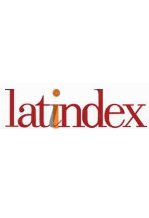The (Un)seen in the contributions to political funding: Lessons from the 2014 Brazilian presidential campaign finance, corruption scandals and new directions in the electoral rules of the game
Resumo
O presente trabalho combina as perspectivas da Teoria da Escolha Pública e da Escola Austríaca de Economia para fornecer uma interpretação da lógica e das consequências do financiamento da campanha presidencial de 2014, frequentemente associada aos escândalos de corrupção revelados pelas investigações da Operação Lava-Jato. A primeira seção discute como as intersecções entre a Teoria da Escolha Pública com a Escola Austríaca de Economia pode fornecer uma compreensão mais rica dos padrões de comportamento político do mundo real. A segunda seção analisa as regras de financiamento eleitoral que valeram para as eleições de 2014. A terceira seção mostra que os principais financiadores corporativos doaram para todos os principais candidatos, independentemente de seus partidos. Apurou-se, ainda, que tais doadores corporativos já mantinham conexões próximas com projetos governamentais de infraestrutura, além de diversos doadores serem beneficiários de crédito subsidiado do governo. A quarta seção amarra a argumentação geral e conclui que alguns dos movimentos posteriores para limitar as contribuições privadas para o financiamento político acabam funcionando como uma cortina de fumaça que reduz a transparência, enquanto o papel ampliado do financiamento público de campanhas políticas pode fomentar novas formas de corrupção e de relações de compadrio.
Downloads
Referências
Boettke, P. J., & Lopez, E. J. (2002). Austrian economics and public choice. The Review of Austrian Economics, 15 (2), 111–119. Retrieved from https://www.academia.edu/download/24942358/10.1.1.199.2076.pdf
BOETTKE, P., & LEESON, P. (2004). An ‘Austrian’s perspective on public choice. In: The encyclopedia of public choice. [s.l.]: Springer, 2004. p. 351–356.
Brazil (1995). 9096. Political Parties Law.
Brazil (1997). 9504/1997. Elections Law.
Buchanan, J. M. (1980). Rent-seeking and profit-seeking. In: Toward a theory of the rent-seeking society. College Station, Texas: Texas A & M University Press. v. 3p. 15.
Buchanan, J., M., & Tullock, G. (1962). The calculus of consent. Ann Arbor: University of Michigan Press.
Central Bank of Brazil. (2020). Special Series. Complete balance of payments as of 1947, public sector net debt and borrowing requirements, SFN loans, direct foreign investments, broad money supply. Retrieved from https://www.bcb.gov.br/en/statistics/specialseries.
DiLorenzo, T. J. (1988). Competition and political entrepreneurship: Austrian insights into public-choice theory. The Review of Austrian Economics, 2(1), 59–71.
Folha de São Paulo. (2017). Folha Explica: Operação Lava Jato. Retrieved from http://arte.folha.uol.com.br/poder/operacao-lava-jato/
Folha de São Paulo. (2019). Entenda o uso do WhatsApp nas eleições e o que aconteceu desde que a Folha revelou o caso. Folha de São Paulo, São Paulo. Retrieved from https://www1.folha.uol.com.br/poder/2019/10/entenda-o-uso-do-whatsapp-nas-eleicoes-e-o-que-aconteceu-desde-que-a-folha-revelou-o-caso.shtml
Folha de São Paulo. (2020). Partidos devem favorecer caciques e repetir modelo do laranjal no rateio do fundão. Folha de São Paulo, São Paulo. Retrieved from https://www1.folha.uol.com.br/poder/2020/01/partidos-devem-favorecer-caciques-e-repetir-modelo-do-laranjal-no-rateio-do-fundao.shtml
Gwartney, J., Lawson, R., Hall, J., & Murphy, R. (2019). Economic Freedom of the World: Economic Freedom of the World. Vancouver: Fraser Institute. Retrieved from: https://www.fraserinstitute.org/sites/default/files/economic-freedom-of-the-world-2019.pdf
Haber, S. (2002). Crony Capitalism and Economic Growth in Latin America: Theory and Evidence. Stanford: Hoover Press.
Hayek, F. A. Von. (1937). Economics and knowledge. Economica, 4(13), 33–54.
Hayek, F. A. Von. (1974). The Pretense of Knowledge. Retrieved from https://www.nobelprize.org/prizes/economic-sciences/1974/hayek/lecture/
Hayek, F. A. Von. (2001). The road to serfdom. London and New York: Routledge.
Holcombe, R. G. (2002). Political entrepreneurship and the democratic allocation of economic resources. The Review of Austrian Economics, 15(2-3),143–159.
Holcombe, R. G. (2013). Crony capitalism: By-product of big government. The Independent Review, 17(4), 541–559.
Holcombe, R. G. (2015, winter). Political capitalism. Cato Journal, 35(1),41. Retrieved from https://www.cato.org/sites/cato.org/files/serials/files/cato-journal/2015/2/cj-v35n1-2.pdf.
IBGE. (2020). Site of the Brazilian Institute of Geography and Statistics (Instituto Brasileiro de Geografia e Estatística - IBGE). Retrieved from https://www.ibge.gov.br.
Ikeda, S. (1997). Dynamics of the mixed economy: Toward a theory of interventionism. London and New York: Routledge.
Ikeda, S. (2003). How compatible are public choice and Austrian political economy? The Review of Austrian Economics, 16(1), 63–75. Retrieved from https://www.researchgate.net/profile/Sanford_Ikeda/publication/5156524_How_Compatible_Are_Public_Choice_and_Austrian_Political_Economy/links/5e0a3ea74585159aa4a6e8ee/How-Compatible-Are-Public-Choice-and-Austrian-Political-Economy.pdf
Kirchinger, D. (2005). Government Without Taxes: Operating For-profit and Paying Dividends to Its Owners: the Constitution for Capitalism. Detroit: Gold Leaf Press.
Kirzner, I. M. (2015). Competition and entrepreneurship. Chicago: University of Chicago Press.
Lisboa, M. B., & Latif, Z. A. (2013). Democracy and Growth in Brazil (Revised Version). Retrieved from https://www.insper.edu.br/wp-content/uploads/2013/07/Democracy_and_Growth_in_Brazil.pdf.
Miller, T., Kim, A. B., & Roberts, J. M. (2019). Economic Index of Economic Freedom: 25th Anniversary Edition. Washington, DC: The Heritage Foundation. Retrieved from https://www.heritage.org/index/pdf/2019/book/index_2019.pdf
Mises, L. Von. (1998). Interventionism: An economic analysis. Indianapolis: Liberty Fund, 1998. Retrieved from http://oll-resources.s3.amazonaws.com/titles/2394/Mises_Interventionism1574_LFeBk.pdf
Mises, L. Von. (1949). Human Action: A Treatise on Economics (4th ed.). San Francisco: Fox and Wilkes.
MPF. (2017). Site of the Federal Prosecution Service (Ministério Público Federal - MPF) about Carwash Operation (Caso Lava Jato). Retrieved from http://www.mpf.mp.br/grandes-casos/lava-jato.
Musacchio, A., & Lazzarini, S. (2014). Reinventando o capitalismo de Estado. O Leviatã nos Negócios: Brasil e outros países. São Paulo: Portfolio Penguin.
National Treasury of Brazil. (2020). Dívida Pública Federal: Relatório Anual 2019: n. 17. Brasília: Secretaria do Tesouro Nacional. Retrieved from http://www.tesouro.fazenda.gov.br/relatorio-anual-da-divida.
Rowley, C. K. & Schneider, F. (2004). The Encyclopedia of Public Choice. New York: Kluwer Academic Publishers.
Schumpeter, J. A. (2003). Capitalism, Socialism and Democracy. London and New York: Routledge.
Singh, M. P. (2005). Quote unquote: A handbook of quotations. New Delhi: Lotus Press.
TSE. (2014). Serviço de Prestação de Contas do Superior Tribunal Eleitoral. Retrieved from http://inter01.tse.jus.br/spceweb.consulta.receitasdespesas2014
Tullock, G., Brady, G. L., & Seldon, A. (2002). Government failure: a primer in public choice. Washington, DC: Cato Institute.
Zywicki, T. (2016). Rent-Seeking, Crony Capitalism, and the Crony Constitution. Supreme Court Economic Review, 23(1), 77–103. Retrieved from https://www.journals.uchicago.edu/doi/pdfplus/10.1086/686473.
Downloads
Publicado
Como Citar
Edição
Seção
Licença
Os direitos autorais dos artigos publicados na Revista de Economia Mackenzie pertencem aos autores, que concedem à Universidade Presbiteriana Mackenzie os direitos exclusivos de publicação do conteúdo. É vedada sua reprodução total ou parcial sem a devida autorização da Comissão Editorial, exceto quando previamente autorizado.










